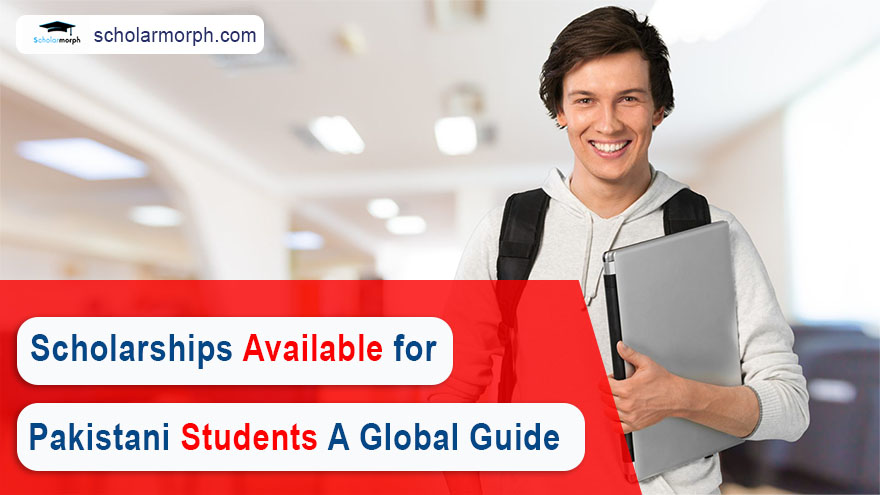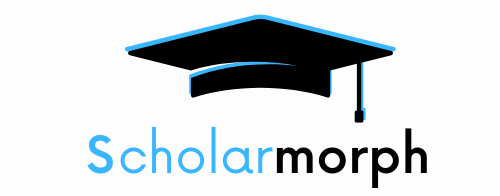For many Pakistani students, securing an international scholarship is a dream that promises a world-class education, cultural exposure,

and the chance to build global networks. However, navigating the journey to win these coveted opportunities is far from straightforward. Without proper guidance, the process can be daunting and riddled with challenges.
Global Opportunities, Local Challenges
While prestigious programs like DAAD (Germany), Fulbright (USA), and Chevening (UK) offer numerous scholarships each year, the road to success is fraught with obstacles. Despite the increasing availability of scholarships, only a small percentage of Pakistani applicants succeed due to fierce competition, financial constraints, and systemic inefficiencies.
The intense global competition for programs like Fulbright and Chevening makes them highly selective. Azam Khan, a consultant for Pakistani students, explains, “These scholarships are seen as a ticket to a better life because they cover tuition, living expenses, health insurance, and travel. Consequently, they attract exceptionally talented candidates from all over the world.”
Strong academic records, compelling personal statements, leadership potential, and sometimes professional experience are essential for applicants to stand out. Unfortunately, even the most accomplished students often find themselves competing against a highly qualified pool, reducing their chances.
Financial Hurdles
Economic challenges remain one of the biggest barriers for Pakistani students pursuing scholarships. The application process itself involves significant expenses, including fees for tests like IELTS, TOEFL, GRE, and GMAT, as well as document attestation and visa applications. For students from low-income backgrounds, these costs can be prohibitive.
For instance, proving English language proficiency through exams such as IELTS or TOEFL can cost between 40,000 to 50,000 rupees. Similarly, preparing for standardized tests like the GRE adds further financial strain. Many students also incur additional costs for coaching classes, which can range from 30,000 to 40,000 rupees for a month-long course.
“Self-preparation through resources like YouTube has been a savior for many of us,” says Zeeshan Siddiqui, who scored a band 7 on the IELTS after studying independently. However, not all students have access to the internet or free resources, particularly in rural areas.
Even after securing scholarships, students may still need to cover visa fees, health insurance, or living expenses, making financial security a prerequisite for applying.
Lack of Guidance and Support
Another significant hurdle is the absence of mentorship and guidance during the application process. From crafting impactful personal statements and research proposals to securing strong letters of recommendation, the process can overwhelm students without access to career counselors or supportive mentors.
“Many applicants struggle to articulate their goals and achievements in a way that appeals to selection committees,” says Naima Alam, a former scholarship recipient. “Our education system emphasizes rote learning over critical thinking, leaving students ill-prepared for such tasks.”
Moreover, students from underprivileged backgrounds often lack the connections needed to secure recommendation letters or guidance on scholarship applications, putting them at a disadvantage compared to their peers from well-resourced urban institutions.
Awareness and Accessibility
Limited awareness of scholarship opportunities also hampers students from smaller cities and rural areas. Poor internet connectivity and a lack of educational resources exacerbate the problem, leaving many unaware of programs they could qualify for.
Language barriers further complicate matters. Many scholarships require English proficiency, yet students from public schools, where Urdu is the primary medium of instruction, often lack the skills to perform well in standardized language tests.
Gender Disparities
For female students, societal norms and safety concerns create additional challenges. Conservative families often hesitate to send daughters abroad, despite their academic potential. “Girls approach far less frequently than boys, even though they perform well academically,” says Khan. This cultural bias leads to a gender gap, depriving many talented women of opportunities.
The Visa Roadblock
Even after earning a scholarship, obtaining a student visa can be a hurdle. Lengthy, unclear procedures and requirements like financial proof or post-study plans often lead to rejections. “I was denied a visa despite having a scholarship,” shares Hashim Islam, whose application was initially refused before succeeding on a second attempt.
Breaking Down Barriers
Despite these challenges, international scholarships remain a beacon of hope for Pakistani students seeking better educational and professional prospects. Addressing structural issues such as improving financial support, increasing awareness, and providing mentorship can empower more students to realize their dreams.
By breaking these barriers, Pakistan can unlock its students’ potential, enabling them to contribute meaningfully to the global knowledge economy.
Scholarships Available for Pakistani Students: A Global Guide
Pakistani students seeking opportunities for higher education abroad have access to numerous scholarships. Below is a comprehensive list of unique options by country:

1. United States
- Fulbright Program: A fully-funded initiative supporting Pakistani students for graduate studies in various fields, sponsored by the US Department of State.
- Hubert H. Humphrey Fellowship: Designed for professionals at mid-career stages, this 10-month program enhances leadership abilities without requiring a degree.
- Global Undergraduate Exchange Program (Global UGRAD): A short-term exchange scholarship for undergraduates, offering a semester of study at an American university.
2. United Kingdom
- Chevening Scholarship: This UK government-funded program offers full support for master’s studies to students showcasing exceptional leadership potential.
- Commonwealth Scholarships: Supports postgraduate students from Commonwealth countries, including Pakistan, to pursue advanced studies in the UK.
- Women in STEM Scholarships: Focused on South Asian women, this program helps students pursue master’s degrees in STEM-related disciplines.
3. Germany
- DAAD Scholarship: Germany’s prestigious scholarship program for postgraduate studies, emphasizing development-related courses.
- Heinrich Böll Foundation: Provides scholarships for master’s and Ph.D. students, with a focus on sustainability, human rights, and environmental studies.
4. Australia
- Australia Awards: Fully funded scholarships supporting postgraduate education, aimed at fostering cultural ties between Australia and Pakistan.
- Endeavour Scholarships: Financially assists Pakistani students in pursuing advanced research or postgraduate studies in Australian institutions.
5. Canada
- Vanier Canada Graduate Scholarship: Tailored for doctoral students involved in high-level research in Canadian universities.
- Lester B. Pearson Scholarship: A full undergraduate funding program at the University of Toronto, offered to outstanding global students, including Pakistanis.
6. Turkey
- Türkiye Scholarships: A comprehensive program covering undergraduate, master’s, and doctoral studies, sponsored by the Turkish government.
- Sabancı University Scholarships: Provides partial and fully-funded opportunities for students pursuing undergraduate and postgraduate programs.
7. China
- Chinese Government Scholarship (CSC): Covers tuition, accommodation, and living expenses for undergraduate to Ph.D. students.
- Belt and Road Initiative Scholarships: Focuses on students from participating countries, including Pakistan, to strengthen educational partnerships.
8. Japan
- MEXT Scholarship: Offers fully-funded programs for undergraduate, graduate, and research studies in Japan, covering tuition and living costs.
9. France
- Eiffel Scholarship Program: Provides funding for master’s and Ph.D. programs, emphasizing fields like science, engineering, and economics.
- Campus France Opportunities: Offers a variety of scholarships supporting international students across diverse academic disciplines.
10. South Korea
- Global Korea Scholarship (GKS): Government-funded opportunities for bachelor’s, master’s, and doctoral students.
- Korean Government Scholarship Program (KGSP): A comprehensive scholarship covering tuition, living expenses, and airfare.
11. Italy
- Invest Your Talent in Italy: Geared toward master’s programs in fields like engineering, architecture, and business.
- Italian Government Scholarships: Provides support for postgraduate and research-level studies in Italian universities.
12. Sweden
- Swedish Institute Scholarship for Global Professionals (SISGP): Fully funded master’s scholarships for individuals committed to global sustainability.
- Karolinska Institutet Scholarships: Supports international students pursuing health-related master’s degrees.
13. Netherlands
- Orange Knowledge Program (OKP): Scholarships for professionals from developing countries, including Pakistan, to study in Dutch institutions.
- Holland Scholarship: Offers financial support for undergraduate and master’s students in the Netherlands.
14. Malaysia
- Malaysian International Scholarship (MIS): A government-funded program for postgraduate students in diverse disciplines.
- UTAR Scholarships: Opportunities for undergraduate and postgraduate students at Universiti Tunku Abdul Rahman.
15. New Zealand
- Commonwealth Scholarships: Provides full funding for postgraduate education, encouraging academic excellence.
- University of Auckland Scholarships: Supports exceptional undergraduate and postgraduate students from around the globe.
16. Qatar
- Qatar University Scholarships: A range of undergraduate and postgraduate programs with substantial financial support.
- HBKU Scholarships: Fully-funded graduate scholarships for international students at Hamad Bin Khalifa University.
17. United Arab Emirates (UAE)
- Khalifa University Scholarships: Comprehensive scholarships covering undergraduate, master’s, and doctoral studies.
UAE University Funding: Provides financial support to international students pursuing advanced education in the UAE.
